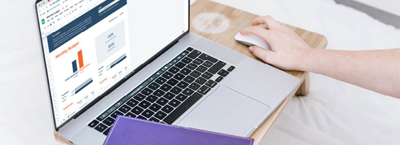
Money management is an incredibly important skill that many of us struggle with. As we all battle with the rising costs of living, this is a skill that, unfortunately, all of us may need to get better at. Not only is it essential for stress free living, but also can be necessary to maintain a good quality of life.
In extreme cases, a lack of money management can be harmful to your financial survival, making this blog all the more important.
The first step to managing money begins with budgeting. If you’ve tried budgeting before and found yourself unable to stick to it, don’t worry. We’ve got you covered.
In this article, we’ll help you with not only setting up a budget but also a few tips to stick to it while also achieving your savings goals.
Living with a budget can be overwhelming, but it is necessary and today we will help make it easier for you to do it.
Setting up a Budget
A topic we’ve discussed before, but the absolutely vital first step in learning how to manage your money. The first step to creating and staying strict with a budget is obviously setting one up. One of the simplest ways to do this is to create an informal balance sheet of your income and expenses.
This balance sheet needs to include literally everything that you spend money on. Travelling, food, childcare, memberships, debt payments and so on.
Once you’ve set it up, you’ll be able to track your inflow and outflow much more clearly and then you can move on to the next step. Balancing your budget is key. If this is something you struggle with, there are plenty of banking apps that can help you keep track and monitor your money on a daily, weekly and monthly basis.
Tracking Your Expenses
In order to balance your budget, you need to track your expenses and sort out the ones that you can reduce or eradicate entirely.
This may involve memberships you don’t use, unnecessary shopping sprees, eating out more than you should etc. To be able to control your expenses, you need to watch your spending habits and keep them in check.
Once you have laid out all the expenses that you can live without, your budget will start making sense and save you money. Additionally, you can also take a look at other expenses that are important but can be reduced by a certain amount.
Cutting Down on Expenses Where You Can
With all of your necessary and luxury expenses mapped out, it’s time to start looking at where you can make cuts to your outgoings.
This doesn’t have to mean missing out, however. For example, a great place to start is to look at where you’re buying things from. For example, are there savings you could make on your food shop? Could you consider buying off brand, rather than branded products? Another great tip is to look at using your credit card too often.
Pay off the Loans That You Can
In order to reduce your expenses, you need to try and get out of small debts which charge high-interest rates. This may be store cards, credit cards, etc.
Instead of juggling several high-interest loans, consider consolidating your debt or loans into an affordable personal loan to pay them off.
Prioritise your debts and pay them off slowly to free your budget from unnecessary high-interest loan repayments. This will be your pathway to better financial stability.
Set a Savings Goal
Once you’ve set up and balanced your budget, you may want to think about making room for a savings fund for yourself.
Set a goal for how much money you want to save each month and slowly find ways to achieve it. Maybe this is cutting back on takeout every now and then or starting a side hustle.
Whatever it is, slow and steady is the goal here, and not putting too much pressure on yourself is absolutely key.
Choose Salad Money for Affordable, “More Than Your Score” Loans
For fair and affordable loans choose Salad Money.
If you’re employed, we can help you with personal loans that don't take your credit score into consideration in the initial lending decision.
With our unique open banking-based affordability assessment, we can analyse your financial situation and suggest the possible solution to your money problems.
You can use our loans for emergencies, debt consolidation or any other personal purpose and then pay them back in small monthly instalments.
Applying for one of our new loans doesn’t impact your credit score. We use Open Banking in our initial assessment. If successful, we report your loan to the CRA’s (Credit Reference Agencies). Your credit score won’t hold you back from being eligible.
To learn more about our services, visit our homepage or contact us now!



